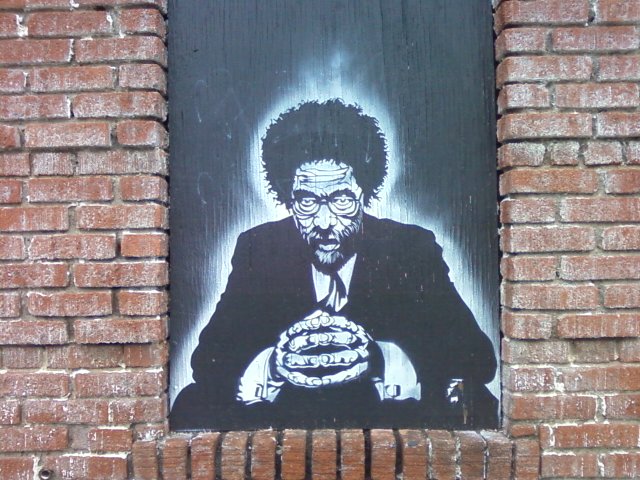
Lest we were at risk of over-sentimentalizing the Obama era, Princeton University-based Professor Cornel West is there to snap us back to mission.
This is a depressing decline in the highest office of the most powerful empire in the history of the world. It could easily produce a pervasive cynicism and poisonous nihilism. Is there really any hope for truth and justice in this decadent time? Does America even have the capacity to be honest about itself and come to terms with its self-destructive addiction to money-worship and cowardly xenophobia?
As a historian, philosopher, and social activist on issues of race and poverty and The Empire, in general, West was, throughout the Obama administration, an outspoken critic of what he saw as Obama’s essentially go-along-to-get-along, Wall Street-friendly, and centralist politics. NPQ wrote about these criticisms a number of times. In his latest essay in the Guardian, West does not exactly blame Obama, whom he calls brilliant and charismatic, for the rise of his successor, but he certainly does not absolve him or his supporters—who, he writes, refused to hold him accountable.
The age of Barack Obama may have been our last chance to break from our neoliberal soulcraft. We are rooted in market-driven brands that shun integrity and profit-driven policies that trump public goods. Our “post-integrity” and “post-truth” world is suffocated by entertaining brands and moneymaking activities that have little or nothing to do with truth, integrity or the long-term survival of the planet. We are witnessing the postmodern version of the full-scale gangsterization of the world.
This started early on, writes West: “Obama met with Wall Street leaders. He proclaimed: I stand between you and the pitchforks. I am on your side and I will protect you, he promised them. And not one Wall Street criminal executive went to jail.”
Sign up for our free newsletters
Subscribe to NPQ's newsletters to have our top stories delivered directly to your inbox.
By signing up, you agree to our privacy policy and terms of use, and to receive messages from NPQ and our partners.
On top of that, he details any number of other failures of what he calls character, including:
- Obama’s education policy unleashed more market forces that closed hundreds of public schools for charter ones.
- The top 1% got nearly two-thirds of the income growth in eight years even as child poverty, especially black child poverty, remained astronomical.
- Labor insurgencies in Wisconsin, Seattle and Chicago (vigorously opposed by Mayor Rahm Emanuel, a close confidant of Obama) were passed over in silence.
- Edward Snowden, Chelsea Manning, Jeffrey Sterling, and other truth-tellers were demonized just as the crimes they exposed were hardly mentioned.
After listing these and many more problems with the outgoing administration, he then writes, “Mainstream media and academia failed to highlight these painful truths linked to Obama. Instead, most well-paid pundits on TV and radio celebrated the Obama brand. And most black spokespeople shamelessly defended Obama’s silences and crimes in the name of racial symbolism and their own careerism. How hypocritical to see them now speak truth to white power when most went mute in the face of black power. Their moral authority is weak and their newfound militancy is shallow.”
These lapses in leadership character—the president’s and our own, he says, have come at a cost. “Obama’s lack of courage to confront Wall Street criminals and his lapse of character in ordering drone strikes unintentionally led to rightwing populist revolts at home and ugly Islamic fascist rebellions in the Middle East.”
So now we find ourselves entering a neofascist era: a neoliberal economy on steroids, a reactionary repressive attitude toward domestic “aliens”, a militaristic cabinet eager for war and in denial of global warming.
No one ever accused West of being at a loss for words. These are particularly tough, perhaps, but they may be well worth a bit of self-reflection.—Ruth McCambridge













